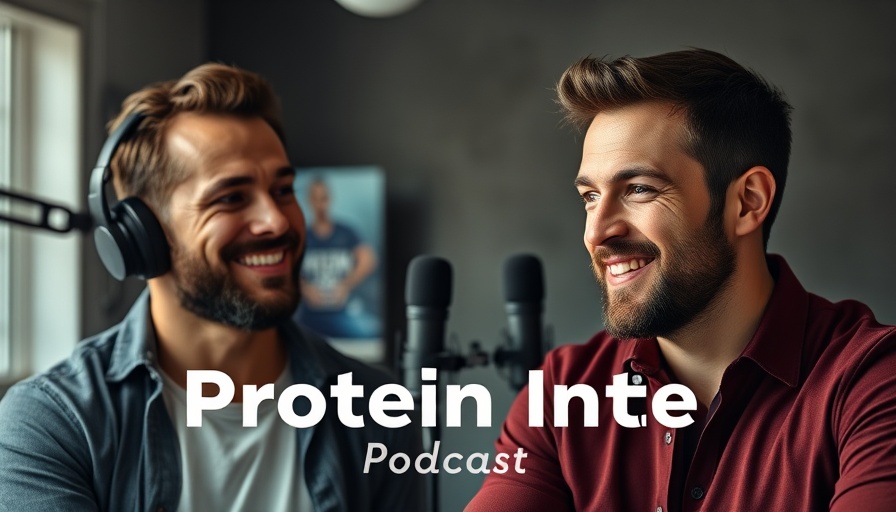
Understanding Daily Protein Needs for Optimal Health
When it comes to maintaining health and vitality, protein is the superhero nutrient we often don’t give enough credit to. But just how much should you really be consuming every day? In the enlightening video titled How Much Protein Should You Really Eat Daily?, Dr. David Allison dives into this crucial nutritional question, revealing science-backed insights that could transform your approach to diet and wellness.
In 'How Much Protein Should You Really Eat Daily?', the discussion dives into the nuanced role of protein in our diets, prompting us to explore its implications for longevity and health.
The Science Behind Protein Consumption
Protein plays a pivotal role in almost every bodily function—from repairing muscle tissues to producing enzymes and hormones. According to Dr. Allison, the amount of protein we need isn’t just a one-size-fits-all recommendation. Factors such as age, activity level, and individual health goals all influence our protein requirements. Generally, the recommended dietary allowance (RDA) for protein is about 46 grams per day for women and 56 grams for men. However, athletes or those looking to build muscle may need significantly more.
Why Does Protein Matter for Longevity?
This brings us to the fascinating link between protein intake and longevity. Research suggests that maintaining a higher protein intake can support cellular health and deter signs of aging—yes, you heard it correctly! As we age, our bodies go through various biological changes. A diet that incorporates adequate protein could support your body in coping with these changes, ensuring a healthier, longer lifespan.
Protein, Telomeres, and Aging Research
Have you ever heard of telomeres? These are the protective caps at the ends of our chromosomes that play a crucial role in cellular aging. Studies reveal that a diet rich in protein can positively affect telomere length, which is directly linked to age-related diseases. By ensuring your daily diet maintains balanced protein levels, you are not merely filling your plate; you could also be enhancing your healthspan—the time you remain healthy and vibrant as you age.
Top Sources of Protein for Your Diet
There’s no shortage of protein sources out there—both animal and plant-based! Chicken, fish, and lean beef stand tall as traditional favorites, while options like lentils, chickpeas, and quinoa are perfect for those pursuing plant-based diets. Incorporating a variety of these sources can not only keep your meals exciting, but also provide other essential nutrients—hello, holistic wellness!
Expert Health Insights: Biohacking Your Protein Intake
In the world of biohacking, knowledge is power. Start by personalizing your protein intake based on your lifestyle and fitness goals. Dr. Allison suggests tracking your daily consumption and adjusting as needed. Remember, more isn’t always merrier—your body will thank you for listening to its unique needs.
Combining Protein with Healthy Lifestyle Strategies
So how do you seamlessly integrate protein into your lifestyle? Consider pairing it with healthy fats and carbohydrates to optimize nutrient absorption. Incorporating protein into your meals not only promotes muscle health but also aids in disease prevention—a key player in the quest for longevity.
Final Thoughts on Protein Consumption
Embracing a protein-rich diet can profoundly affect your wellness journey, supporting longevity and overall health. In Dr. Allison’s video, he expertly navigates the complex web of protein consumption, making it feel attainable and engaging. Armed with this information, it’s time for you to take control of your nutrition and make choices that enhance your life.
Whether you're a seasoned athlete or just someone looking to optimize your health, remember: it’s not just about the quantity of protein you eat, but also the quality. So, which protein-packed meals have you got queued up for this week?
 Add Row
Add Row  Add
Add 




Write A Comment